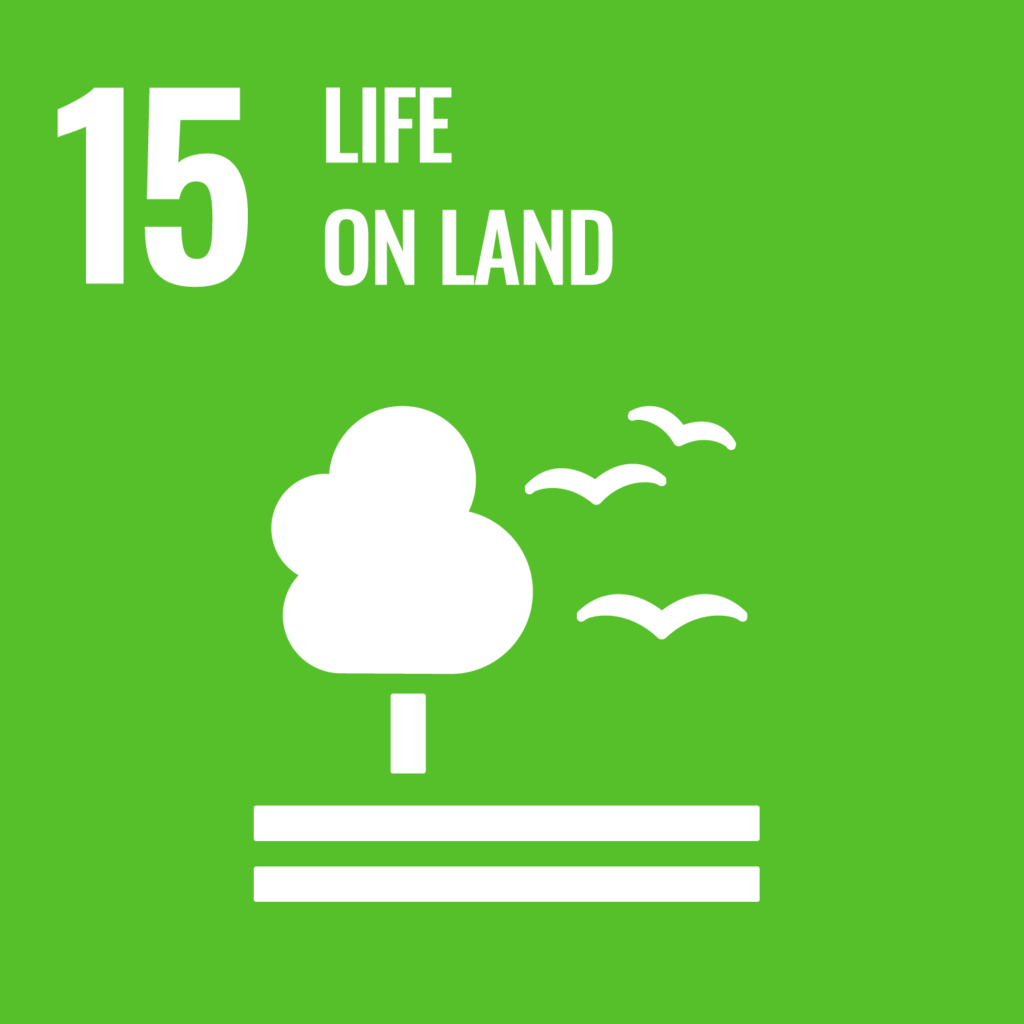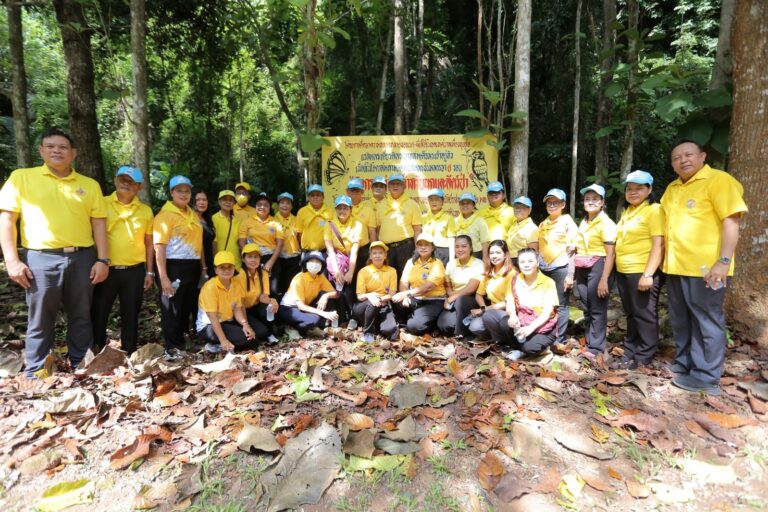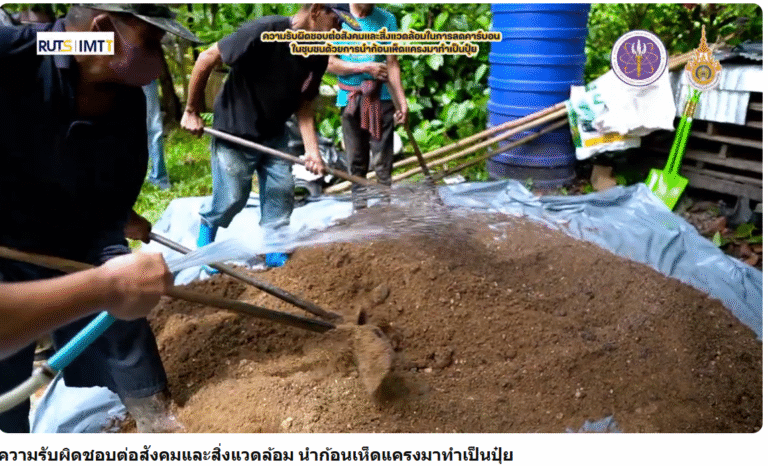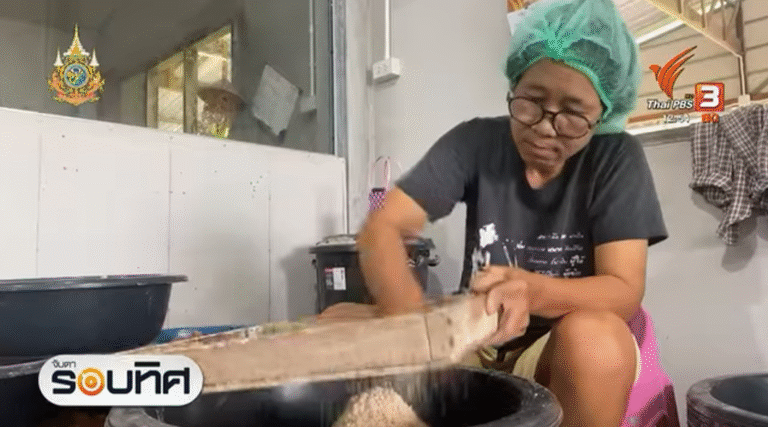Reporters: Asst.Prof.Dr. Prapot Maliwan
Assoc.Prof.Dr. Pornsil Seephueak
Asst.Prof.Dr. Nion Chirapongsatonkul
Asst.Prof.Dr. Worawitoo Meesook
Evidence Date: during 2024 Jan-Dec
Related Indicators: 15.3.1
Details:
Rajamangala University of Technology Srivijaya (RUTS) has established comprehensive institutional policies that integrate sustainable land management principles into its academic programs, directly supporting SDG Target 15.3 on sustainable use, conservation, and restoration of terrestrial ecosystems. These policies ensure that future agricultural professionals are equipped with knowledge and practical skills to address land degradation challenges and promote sustainable agricultural practices.
Institutional Policy Framework
RUTS operates under the institutional mission of “Creating agricultural technology professionals for sustainable national development,” which explicitly incorporates environmental sustainability into its core educational objectives. This policy framework mandates that all agricultural programs integrate sustainable land management practices, soil conservation methods, and ecosystem restoration principles throughout their curricula. The policy emphasizes producing graduates who are “expert in technology, skilled in practice,” ensuring that theoretical knowledge translates into practical application for addressing real-world land degradation challenges.
The Faculty of Agriculture implements this institutional policy through structured curriculum requirements across all agricultural programs, particularly in Plant Science and related disciplines. Students receive systematic training in soil health management, nutrient conservation, erosion prevention, and sustainable farming practices. The curriculum integrates both scientific principles and hands-on field applications, preparing graduates to implement sustainable land use strategies in diverse agricultural contexts.
Curriculum Integration of Sustainable Soil Management
The Plant Science Program exemplifies policy implementation through comprehensive coursework covering soil conservation methods, efficient fertilizer use, and nutrient management strategies aligned with land degradation neutrality goals. Core curriculum components include soil testing protocols for precise nutrient application, organic fertilizer utilization, sustainable crop rotation systems, and water retention improvement techniques. These elements directly address SDG Indicator 15.3.1 requirements for promoting sustainable use and restoration of land resources.
Students learn to implement strategies preventing soil erosion and degradation while enhancing crop productivity through sustainable intensification rather than agricultural expansion. The curriculum emphasizes maintaining soil organic matter, preserving soil quality, and utilizing eco-friendly farming practices that reduce environmental impact. This education equips graduates with competencies to apply innovative soil management methods that balance agricultural productivity with ecosystem conservation.
Biotechnology Integration for Sustainable Agriculture
Beyond traditional soil management, RUTS policy framework incorporates biotechnology education as a tool for sustainable land use. The curriculum includes training on microbial applications for improving soil health and remediating degraded lands, fermentation technologies for agricultural waste valorization, and biological approaches to nutrient management. This biotechnology integration prepares students to develop and implement innovative solutions for restoring degraded agricultural lands and preventing further land deterioration.
Students engage in practical projects demonstrating circular economy principles, such as converting agricultural by-products into valuable resources for soil amendment or animal feed production. These activities reinforce policy objectives of reducing agricultural waste accumulation and minimizing pressure to clear additional land for agricultural expansion.
Assessment of Policy Effectiveness
The effectiveness of RUTS sustainable land management policy is demonstrated through student achievements in national competitions and real-world applications. The policy’s emphasis on applied learning develops problem-solving abilities and expertise that students can showcase at competitive platforms. Success in national agricultural skills competitions validates the quality of education and training students receive under this policy framework.
Furthermore, student-led initiatives demonstrate policy impact on developing practical sustainability competencies. Examples include innovative projects converting food waste into resources through vermiculture and black soldier fly larvae cultivation, reducing organic waste contribution to landfills while producing valuable agricultural inputs. These projects exemplify how RUTS policy framework cultivates student creativity and entrepreneurship in addressing environmental challenges through sustainable agricultural innovations.
Alignment with National Agricultural Goals
RUTS policy framework aligns with Thailand’s national agricultural sustainability objectives by producing graduates capable of implementing practices that prevent soil degradation and enhance long-term crop productivity. The policy supports broader governmental efforts to promote sustainable land management across the agricultural sector, contributing to national commitments under international frameworks including the United Nations Sustainable Development Goals.
By systematically integrating sustainable land management principles into agricultural education, RUTS ensures that future agricultural professionals possess both technical knowledge and practical skills to address land degradation challenges. This policy-driven approach creates lasting impact by producing graduates who become change agents in their communities, implementing sustainable practices that conserve and restore terrestrial ecosystems while maintaining agricultural productivity.
The institutional commitment to sustainable land management education, embodied in comprehensive policy frameworks and demonstrated through curriculum integration and student outcomes, positions RUTS as a leader in agricultural education that prioritizes environmental sustainability and responsible land stewardship.
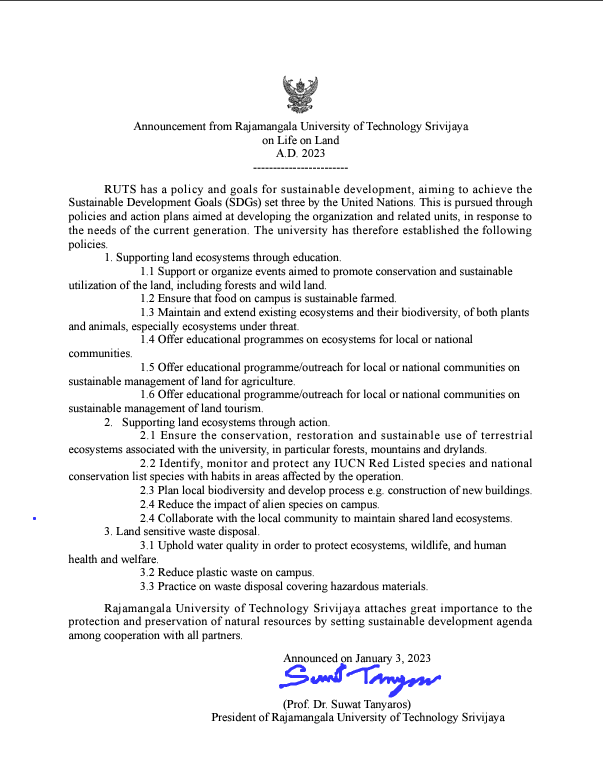
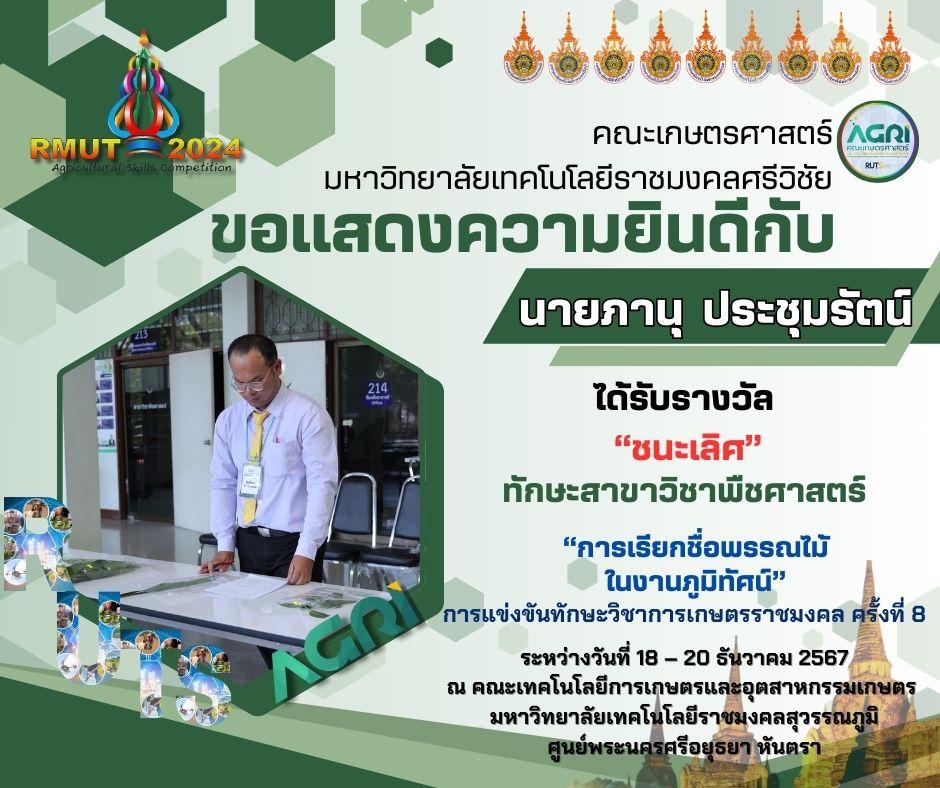
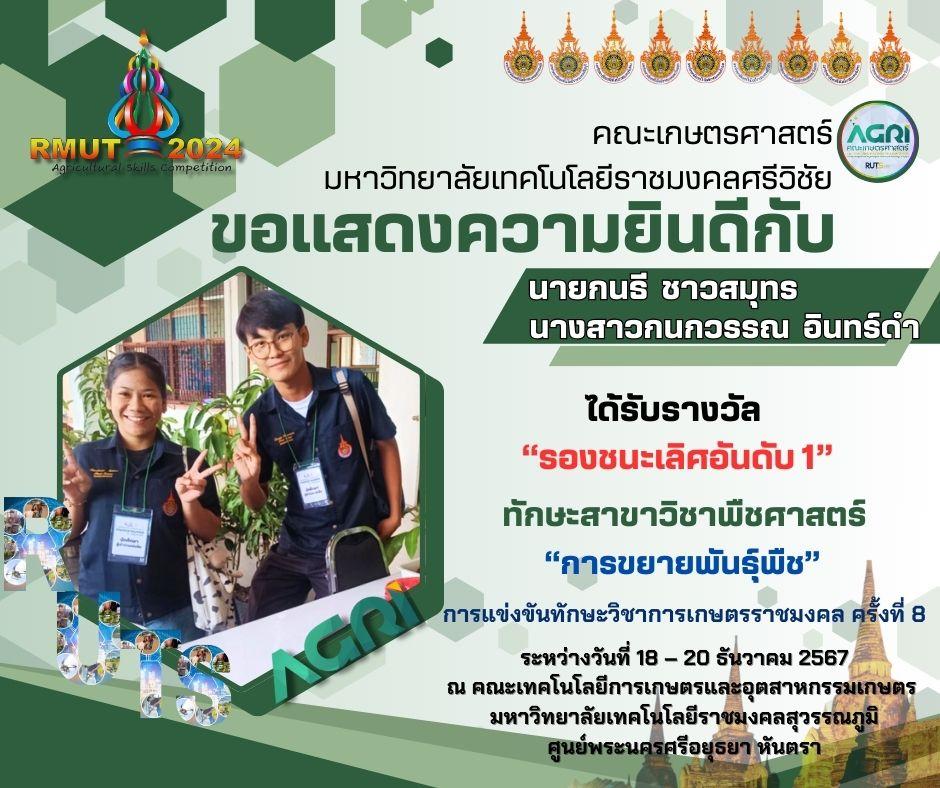
Related Links:
https://www.facebook.com/photo/?fbid=1018894326944491&set=pcb.1017988583701732
https://acrobat.adobe.com/id/urn:aaid:sc:AP:205fcef8-86ff-489a-b48f-bf5516bb7b99

